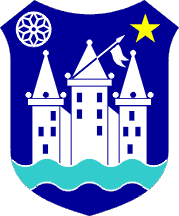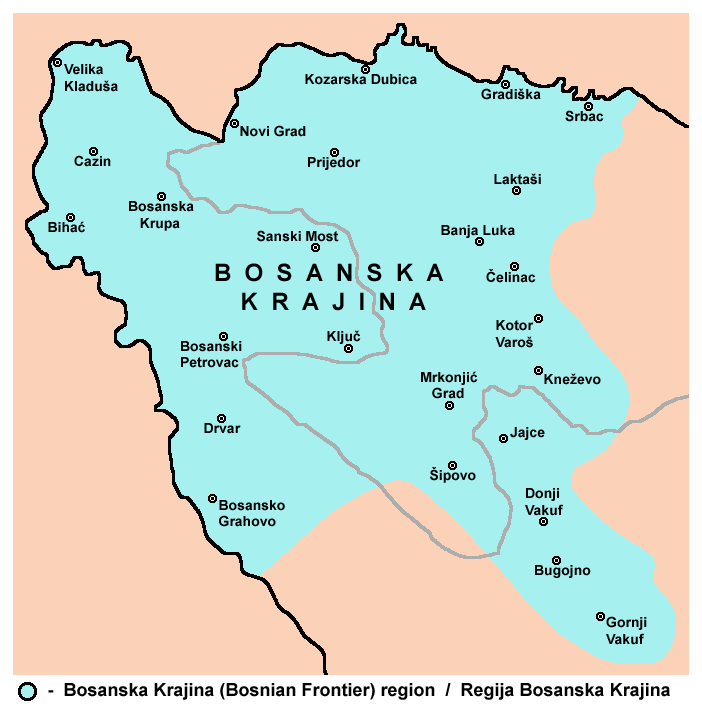|
Pecija
Petar Popović ( sr-cyr, Петар Поповић; 1826 – 29 August 1875), known as Pecija (Пеција), was a Serb ''hajduk'' (brigand) and rebel leader in two uprisings against the Ottoman Empire in the Bosanska Krajina region, one in 1858, and one in 1875. Life Early life Petar Popović was born into a Serbian Orthodox family in the village of Bušević, in Krupa na Uni (modern-day Bosnia and Herzegovina), in 1826. His father's name was Petar and his mother was Ilinka. He spent the greater part of his life in Bosanska Kostajnica. He was an autodidact, apart from Serbian he also spoke Turkish. As an opponent to the Ottoman state, Petar, at only 22 years of age in 1848, joined the hajduks and actively, for the rest of his life, fought the Ottomans. Pecija's First Revolt In mid-1858, an uprising broke out in northwestern Bosnia, resulting from Ottoman pressure against the local Serb populace. In Ivanjska in the Krupa ''nahiyah'', the Serb population of that Cathol ... [...More Info...] [...Related Items...] OR: [Wikipedia] [Google] [Baidu] |
Pecija's First Revolt
Pecija's First Revolt ( sr-cyr, прва Пецијина буна) or Doljani Revolt (Дољанска буна) was an uprising in Knešpolje led by Serb hayduk leader Pecija, Petar Popović–Pecija (1826–1875) against the Ottoman government, that extended over the period of June—December 1858. It was a result of pressure against the local Serb populace, with past atrocities conducted by the Ottomans. Background In 1857, an uprising was led by Luka Vukalović in Herzegovina, followed by the 1858 Uprising which included the Prota's Revolt in Gradačac ''srez'' (municipality), led by ''prota'' Avramović, and at the same time Pecija's Revolt in Krajina. Revolt In mid-1858, an uprising broke out in northwestern Bosnia, resulting from Ottoman pressure against the local Serb populace. In Ivanjska, Bosanska Krupa, Ivanjska in the Bosanska Krupa, Krupa ''nahiyah'', the Serb population of that Catholic-majority village rose up. After short shootings around Ivanjska, the other vill ... [...More Info...] [...Related Items...] OR: [Wikipedia] [Google] [Baidu] |
Bosanska Kostajnica
Kostajnica ( sr-cyr, Костајница) is a town and municipality located in northern Republika Srpska, an entity of Bosnia and Herzegovina.the official web site of the municipality Kostajnica/Костајница. It is situated in the part of the Кrajina region.official name of region As of 2013, it had a population of 5,977 inhabitants, while the town of Kostajnica has a population of 4,047 inhabitants. The municipality was created from part of the pre-war municipality of [...More Info...] [...Related Items...] OR: [Wikipedia] [Google] [Baidu] |
Krupa Na Uni
Krupa na Uni ( sr-cyrl, Крупа на Уни) is a municipality in northern Republika Srpska, an entity of Bosnia and Herzegovina. It is situated in the north-western part of the Republika Srpska entity and the central part of the Bosanska Krajina region. The seat of the municipality is the village of Donji Dubovik. History It was created in 1995 from part of the pre-war municipality of Bosanska Krupa (the other part of the pre-war municipality that is now in the entity of Federation of Bosnia and Herzegovina). As of 2019, it is one of the smallest municipalities by number of inhabitants in Republika Srpska. Geography It is located between the municipality of Bosanska Krupa to the south and west, the municipality of Novi Grad to the north, and the municipality of Oštra Luka to the east. Demographics Population Ethnic composition Notable people *Pecija, revolutionary *Branko Ćopić, Bosnian and Yugoslav writer *Gojko Kličković, former President of the Government o ... [...More Info...] [...Related Items...] OR: [Wikipedia] [Google] [Baidu] |
Doljani, Bihać
Doljani (Serbian Cyrillic: Дољани) is a village in the municipality of Bihać, Bosnia and Herzegovina. History In June 1858, Pecija's First Revolt Pecija's First Revolt ( sr-cyr, прва Пецијина буна) or Doljani Revolt (Дољанска буна) was an uprising in Knešpolje led by Serb hayduk leader Pecija, Petar Popović–Pecija (1826–1875) against the Ottoman government, ... broke out in Knešpolje, that expanded into the Bosanska Krajina and on 4 July, a battle was fought in the village in which 100 Turks were killed by Serb rebels. Demographics According to the 2013 census, its population was nil, down from 154 in 1991. References Populated places in Bihać {{UnaSanaCanton-geo-stub ... [...More Info...] [...Related Items...] OR: [Wikipedia] [Google] [Baidu] |
Bosanska Krajina
Bosanska Krajina ( sr-cyrl, Босанска Крајина, ) is a geographical region, a subregion of Bosnia, in western Bosnia and Herzegovina. It is enclosed by a number of rivers, namely the Sava (north), Glina (northwest), Vrbanja and Vrbas (east and southeast, respectively). The region is also a historic, economic and cultural entity of Bosnia and Herzegovina, famous for its natural beauties and wildlife diversity. The largest city, and its historical center is Banja Luka. Other cities and towns include Bihać, Bosanska Krupa, Bosanski Petrovac, Bosansko Grahovo, Bužim, Cazin, Drvar, Gradiška, Ključ, Kostajnica, Kozarska Dubica, Laktaši, Mrkonjić Grad, Novi Grad, Prijedor, Sanski Most, Šipovo, Velika Kladuša. Bosanska Krajina is not a formal entity within the structure of Bosnia and Herzegovina; however it has a significant cultural and historical identity that was formed through several historic and economic events. The territory of Bosanska Krajina is curre ... [...More Info...] [...Related Items...] OR: [Wikipedia] [Google] [Baidu] |
Hajduk
A hajduk ( hu, hajdúk, plural of ) is a type of irregular infantry found in Central and parts of Southeast Europe from the late 16th to mid 19th centuries. They have reputations ranging from bandits to freedom fighters depending on time, place, and their enemies. In the European lands of the Ottoman Empire, the term ''hajduk'' was used to describe bandits and brigands of the Balkans, while in Central Europe for the West Slavs, Hungarians, Romanians, and Germans, it was used to refer to outlaws who protected Christians against provocative actions by the Ottomans. By the 17th century they were firmly established in the Ottoman Balkans, owing to increased taxes, Christian victories against the Ottomans, and a general decline in security. Hajduk bands predominantly numbered one hundred men each, with a firm hierarchy under one leader. They targeted Ottoman representatives and rich people, mainly rich Turks, for plunder or punishment to oppressive Ottomans, or revenge or a co ... [...More Info...] [...Related Items...] OR: [Wikipedia] [Google] [Baidu] |
Knešpolje
Knešpolje ( sr-cyr, Кнешпоље) or Knežopolje (Кнежопоље) is a region in northwestern Bosnia and Herzegovina. It is the northwestern part of the Potkozarje geographical region, and includes a region stretching from Prijedor, Kozara mountains, Bosanska Dubica, the Una river and Bosanska Kostajnica. Its name is derived from ''knez'' (count, duke) and ''polje'' (field). Geography The region lies in northwestern Bosnia and Herzegovina, in the wider Bosanska Krajina region. It is the northwestern part of the Potkozarje geographical region, and includes a region stretching from Prijedor, Kozara mountains, Bosanska Dubica, the Una river and Bosanska Kostajnica. History The region is known for its rebellions against Ottoman rule. In 1858, an uprising broke out in the region, known as Pecija's First Revolt. The region is known as a place where Serbs were persecuted by the Ustashe in World War II; Bosnian Muslim poet Skender Kulenović wrote about the Kozara tragedy. ... [...More Info...] [...Related Items...] OR: [Wikipedia] [Google] [Baidu] |
Bihać
Bihać ( cyrl, Бихаћ) is a city and the administrative centre of Una-Sana Canton of the Federation of Bosnia and Herzegovina, an entity of Bosnia and Herzegovina. It is situated on the banks of river Una in northwestern Bosnia and Herzegovina, in the Bosanska Krajina region. In 2013 its population was 56,261. Settlements * Bajrići *Brekovica * Bugar *Ćukovi * Doljani *Donja Gata * Dubovsko *Gorjevac * Grabež * Grmuša * Hrgar * Izačić * Jezero *Kalati *Kulen Vakuf *Lohovo * Lohovska Brda *Mala Peća * Mali Skočaj * Međudražje * Muslići * Ostrovica * Papari * Praščijak * Pritoka * Račić * Rajinovci *Ripač * Spahići * Srbljani * Velika Gata * Veliki Skočaj *Veliki Stjenjani * Vikići *Vrsta *Zavalje i Zlopoljac History According to documents and historical sources, the first medieval urban settlements and towns around the Una river, began to appear in the middle of the 13th century. Bihać, as the centre of , was first mentioned on 26 February 1260, in the ch ... [...More Info...] [...Related Items...] OR: [Wikipedia] [Google] [Baidu] |
Una (Sava)
The Una ( sr-cyrl, Уна, ) is a border river between Bosnia and Herzegovina and Croatia and a right tributary of the Sava river. It is part of the Black Sea drainage basin, and its watershed has a size of 10.200 km2, of which 8.080 km2 belongs to Bosnia and Herzegovina, and 2.120 km2 to Croatia. The total length of the river is 212 km.http://www.voda.ba/udoc/planupravljanjavodama/PD%207%20-%20BiH%20-%20Hidroloske%20analize.pdf The source of the river is located in the town of Donja Suvaja, Croatia, Donja Suvaja in Croatia, and its mouth is located near the town of Jasenovac, Sisak-Moslavina County, Jasenovac, on the border with Bosnia. The largest right tributaries are the Krka (Una), Krka, Unac (river), Unac, Krušnica and Sana (river), Sana rivers, and the largest left tributary is the Klokot river. Its longest headwater is the Unac river. The largest and most important city located on the river is Bihać. Other, important cities and towns are Bosanska Krup ... [...More Info...] [...Related Items...] OR: [Wikipedia] [Google] [Baidu] |
Zulum
''Ẓulm'' is the Arabic word used interchangeably for cruelty or unjust acts of exploitation, oppression, and wrongdoing, whereby a person either deprives others of their rights or does not fulfill his obligations towards them. In Turkish, it is known as ''zulüm'' and other cognates of this word are prevalent in several Semtic and Indo-European languages. A person who commits zulm is called a "''ظالم zaalim''". In the Islamic context injustice or acts of cruelty are attributed to human acts and not to Allah Allah (; ar, الله, translit=Allāh, ) is the common Arabic word for God. In the English language, the word generally refers to God in Islam. The word is thought to be derived by contraction from '' al- ilāh'', which means "the god", an ...: ''God does not do injustice to anyone. It is the people who do injustice to themselves''.Quran 11 : 101 References Islamic terminology Arabic words and phrases Urdu-language words and phrases Turkish words and phra ... [...More Info...] [...Related Items...] OR: [Wikipedia] [Google] [Baidu] |
Groschen
Groschen (; from la, grossus "thick", via Old Czech ') a (sometimes colloquial) name for various coins, especially a silver coin used in various states of the Holy Roman Empire and other parts of Europe. The word is borrowed from the late Latin description of a tornose, a ''grossus denarius Turnosus,'' in English the "thick denarius of Tours". Groschen was frequently abbreviated in old documents to ''gl'', whereby the second letter was not an '' l'' (12th letter of the alphabet), but an abbreviation symbol; later it was written as ''Gr'' or ''g''. Names and etymology The name was introduced in 13th-century France as ', lit. "thick penny", whence Old French ', Italian ', Middle High German ', Low German and Dutch ' and English '' groat''. In the 14th century, it appeared as Old Czech ', whence Modern German '. Names in other modern European languages include: * sq, grosh * Church Slavonic-derived languages: Bulgarian, Macedonian, Russian and Serbo-Croatian ('), Ukrain ... [...More Info...] [...Related Items...] OR: [Wikipedia] [Google] [Baidu] |







